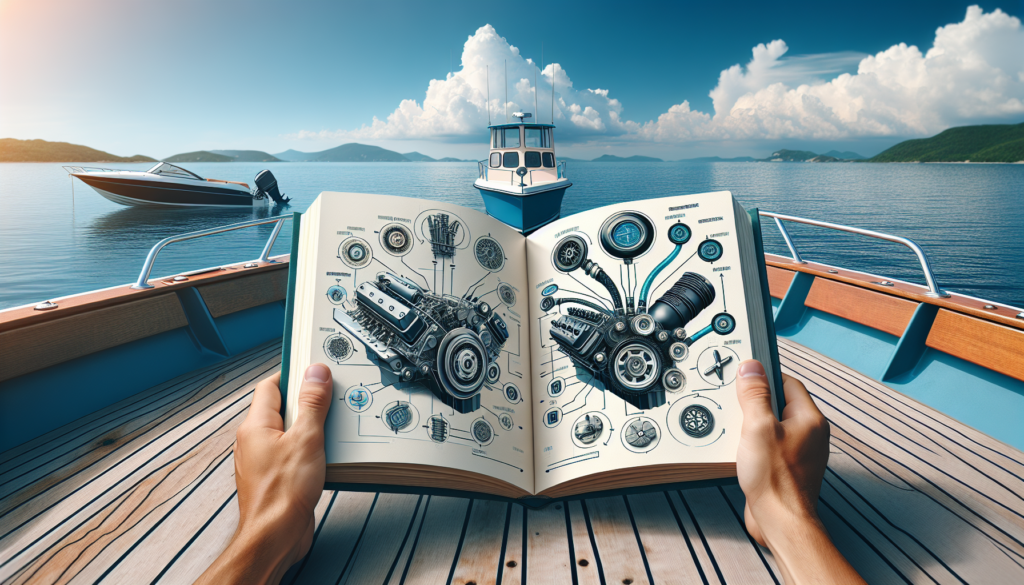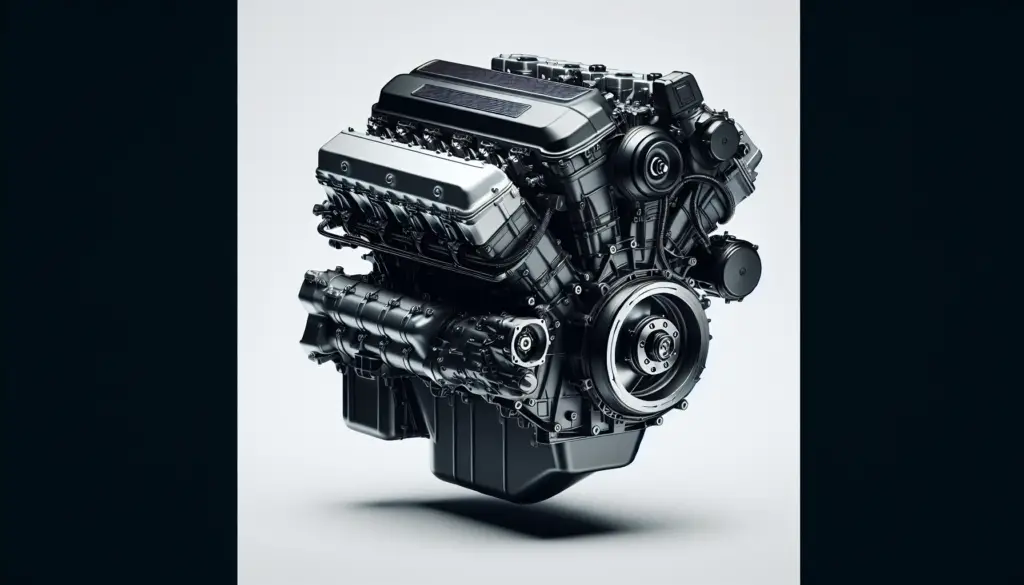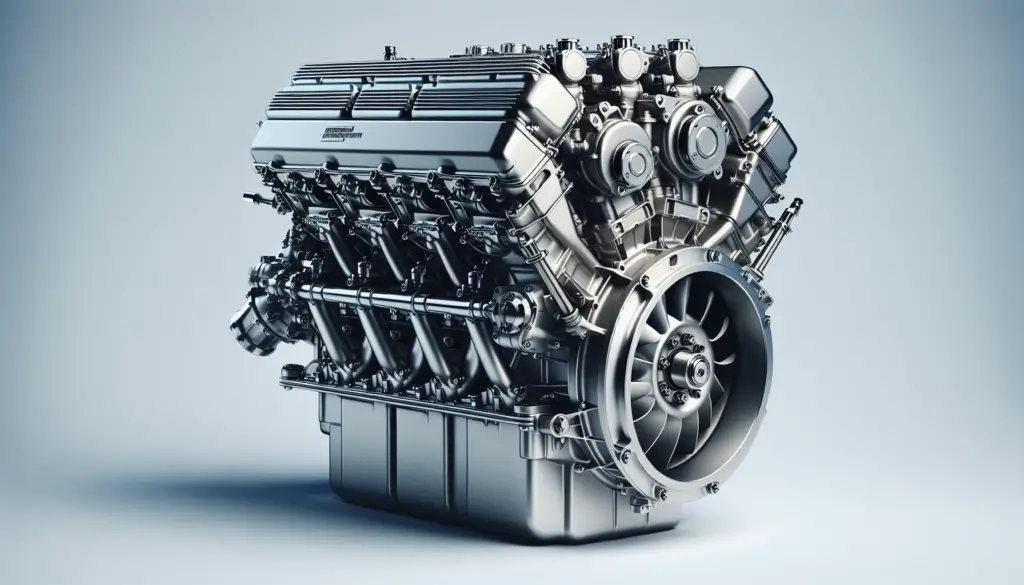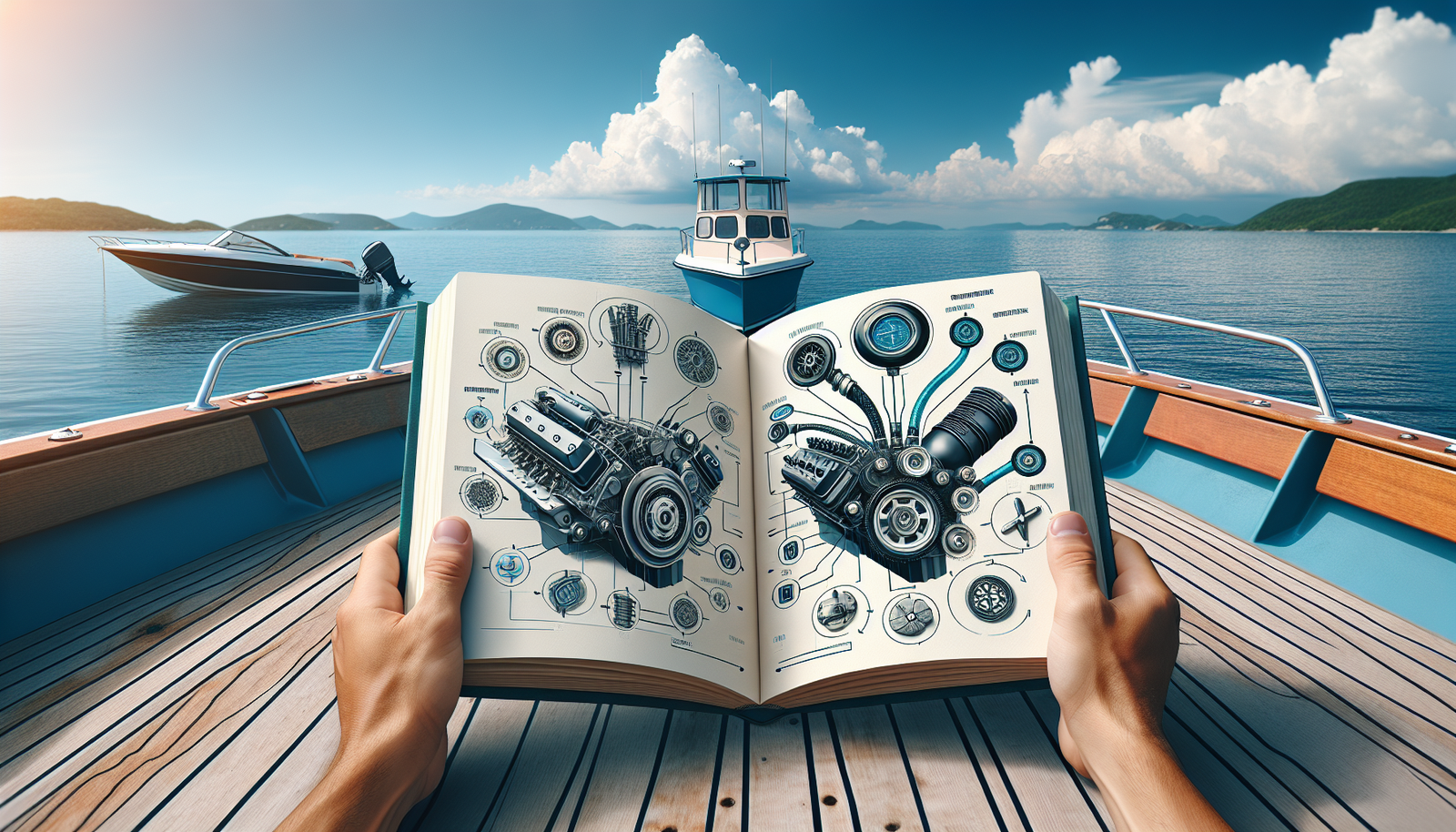Whether you’re a seasoned sailor or a joy-riding enthusiast, upgrading your boat’s engine is a decision that requires careful thought. In “Buyer’s Guide: What To Consider When Upgrading Your Boat Engine,” you’ll come across an array of factors that play into choosing the right engine for your watercraft. From power specifications to fuel efficiency, maintenance costs, compatibility, and beyond, this guide is set to provide a clear path through the seemingly complex sea of engine choices, ensuring your boat sails not just smoothly, but smartly too.

Understanding Your Current Boat Engine
Before deciding to upgrade your boat engine, it’s vital to have a comprehensive understanding of your current engine’s specifications, performance, and overall condition.
Identifying Engine Type
Different boats feature diverse types of engines, each with its strengths and weaknesses. Some boats come with outboard engines, while others have inboard engines. It would be best if you familiarized yourself with the exact type of engine your boat currently has. The type of engine determines numerous aspects, including how your boat operates and the engine’s maintenance needs.
Determining Engine Power
Next, you should identify your existing engine’s power, typically measured in horsepower. The engine power affects several aspects of your boat’s performance, such as speed and efficiency. Understanding your current engine’s power will guide you in deciding whether to upgrade and the kind of engine to choose for an upgrade.
Assessing Current Engine Condition
Lastly, assess your current engine’s condition. It’s crucial to check for any signs of damage or wear and could affect your boat’s performance. Regular servicing and maintenance can extend the life of your engine, but even the best-kept engines will eventually require an upgrade.
Reasons for Upgrading Your Boat Engine
There are several compelling reasons why you might consider upgrading your boat engine.
Increasing Performance
Perhaps the most common reason for upgrading is to enhance your boat’s performance. A more powerful engine can increase your boat speed, improve maneuverability, and even offer better stability in tough water conditions.
Improving Fuel Efficiency
Upgrading to a more fuel-efficient engine can save you a great deal of money in the long run. Modern engines are designed to consume less fuel without compromising performance, making them an excellent investment.
Lowering Maintenance Costs
Older boat engines often require frequent and costly repairs and maintenance. By upgrading, you can significantly reduce these costs while enjoying a more reliable performance.
Introducing Modern Features
Today’s engines come with modern features designed to improve your boating experience. These include digital controls, fuel management systems, and even advanced diagnostic capabilities to help you identify potential problems before they become serious.

Types of Boat Engines
When it comes to upgrading your boat engine, there are various options available on the market.
Outboard Engines
Outboard engines are popular because of their simplicity and versatility. They are mounted on the boat’s stern, enabling you to easily access them for maintenance and repairs.
Inboard Engines
In contrast, inboard engines are built inside the boat. They offer excellent balance and power but are more challenging to maintain than outboard engines.
Diesel Engines
If you are after durability and fuel efficiency, a diesel engine could be an ideal choice. Diesel engines are more expensive initially but tend to have lower operating costs in the long term.
Gasoline Engines
Gasoline engines are generally cheaper and lighter than diesel ones offering impressive speed and performance. However, they are less fuel-efficient and may require additional maintenance.
Determining Your New Engine Needs
Before purchasing a new engine, you need to determine your specific requirements.
Boat’s Size and Type
The size and type of your boat play a significant role in choosing a new engine. For instance, larger boats require more powerful engines, while smaller vessels may do perfectly fine with less horsepower.
Usual Boating Activity
Your typical boating activities also factor into your decision. If you use your boat mainly for fishing in calm waters, you might not require as much power as someone who regularly cruises in rough seas.
Common Sea Conditions
Lastly, consider the typical sea conditions in your usual boating area. Rough waters demand a more powerful engine than calm lakes and rivers.

Budget Considerations
Upgrading your boat engine is a significant financial decision, and there are several costs to consider.
Cost of New Engine
Your first consideration will be the price of the new engine itself. Consider your budget and what you can realistically afford.
Installation Charges
The costs don’t stop at purchasing the engine. Depending on whether you choose to install the engine yourself or hire a professional, installation charges may apply.
Maintenance Expenses
Finally, consider the ongoing maintenance costs. Different types of engines come with different maintenance needs, which can affect the overall cost of ownership.
Comparing Engine Brands
When purchasing a new boat engine, the brand can make a significant difference in terms of reliability, performance, and value for money.
Engine Warranty
A good warranty can protect you in case of any defects or issues with your new engine. Be sure to compare warranties between different brands and choose one that offers the best terms.
Brand Reputation
Consider the reputation of each brand before making a decision. Brands with a good reputation often indicate high-quality products and excellent customer service.
Customer Reviews
Customer reviews can also provide valuable insights into the engine’s performance and reliability. A product with many positive reviews is likely to be a safe bet.
After-Sale Servicing
Consider whether the brand offers good after-sale services, such as maintenance and repairs, which can contribute to the longevity of your new engine.

Understanding Engine Specifications
When choosing a new boat engine, understanding the engine’s specifications is critical.
Engine Horsepower
This refers to the engine’s power output and directly impacts the speed and performance of your boat.
Engine Displacement
Engine displacement refers to the total volume of all the cylinders in an engine. A higher displacement usually translates into more power but also higher fuel consumption.
Fuel Consumption Rate
Understanding the engine’s fuel consumption rate can give you an idea of the operating costs of the new engine.
Legal and Environmental Compliance
It’s essential to ensure your new engine adheres to all applicable laws and regulations.
Emissions Standards
With increasing concern for the environment, emissions standards have become stricter. Ensure your new engine complies with these standards to avoid costly fines and penalties.
Noise Regulations
Certain areas have noise regulations in place to limit the noise produced by boat engines. Make sure your new engine meets these rules to prevent disturbing your fellow boaters and locals.
Local Boating Laws
Finally, familiarize yourself with the local boating laws in your area as they might have specific requirements concerning boat engines.
Engine Installation and Setup
Once you’ve chosen a new engine, it’s time for the installation process.
Professional Installation vs. DIY
While some people prefer to install their new boat engines themselves, others prefer to hire a professional to ensure the job is done right. Both options have pros and cons that you need to weigh before making a decision.
Necessary Tools and Equipment
If you decide to install the engine yourself, you’ll need certain tools and equipment. This may increase the overall cost if you don’t already own these items.
Safety Precautions
Remember, safety should be your top priority during the installation process. Always follow the manufacturer’s guidelines and don’t hesitate to seek professional help if you’re unsure about any aspect of the installation.
Post-Installation Maintenance
Finally, after the engine has been installed, you need to establish a routine maintenance schedule.
Routine Engine Checkup
Regular check-ups help keep your engine running smoothly. These checks can include general inspections, oil changes, and checking for any uncommon noises or vibrations.
Engine Cleaning and Winterization
Keeping your engine clean can prolong its life. If you’re in a cold climate, winterizing your engine can help protect it from the harsh winter conditions.
Handling Common Engine Issues
Knowing how to handle common issues can save you time and money in the long run. It’s always beneficial to educate yourself on some basic troubleshooting.
By considering all these factors, you can make an informed decision when it comes to upgrading your boat engine. Remember, a well-thought-out choice will not only improve your boating experience but also offer you peace of mind. Happy boating!

